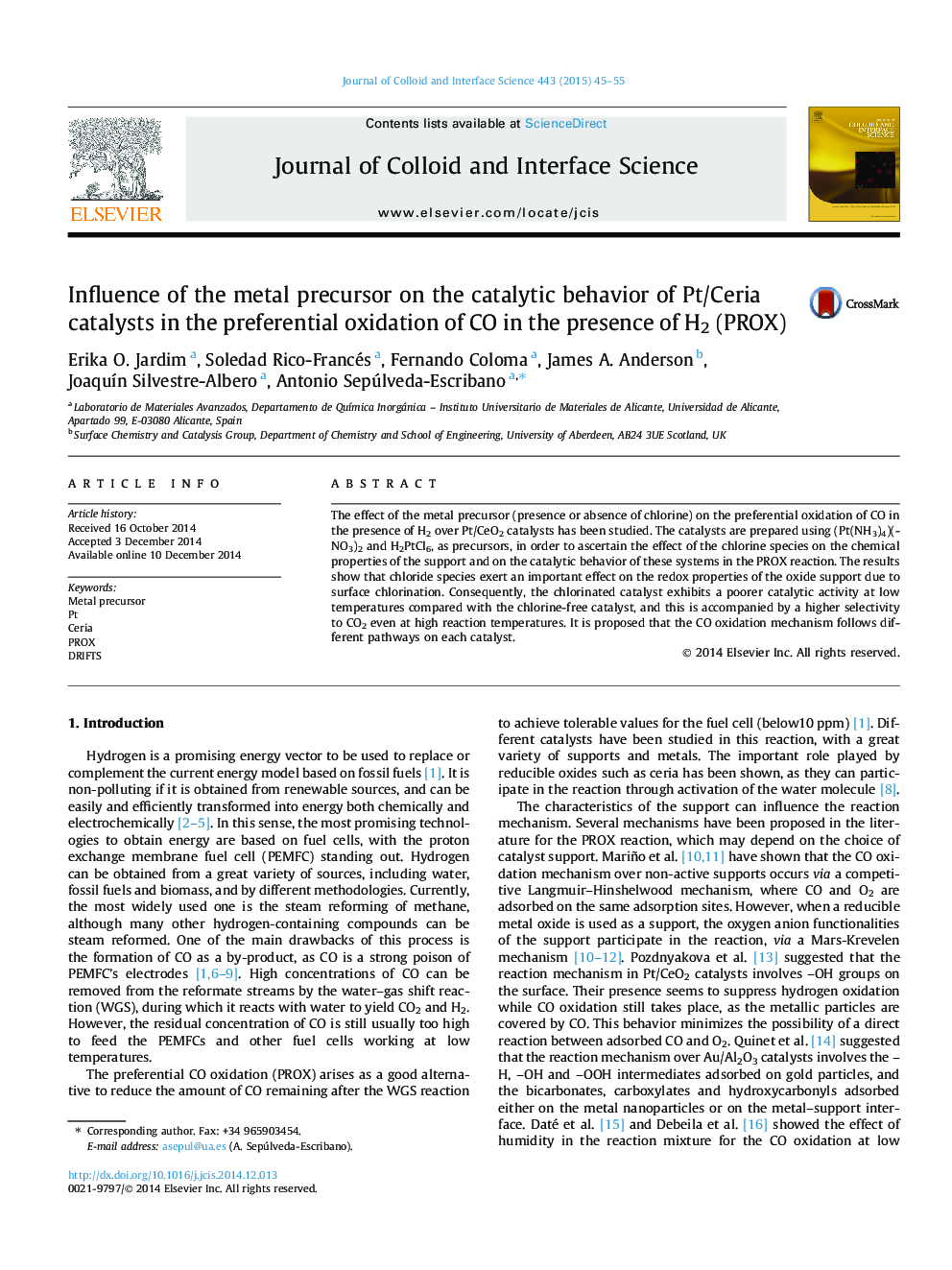| Article ID | Journal | Published Year | Pages | File Type |
|---|---|---|---|---|
| 606989 | Journal of Colloid and Interface Science | 2015 | 11 Pages |
The effect of the metal precursor (presence or absence of chlorine) on the preferential oxidation of CO in the presence of H2 over Pt/CeO2 catalysts has been studied. The catalysts are prepared using (Pt(NH3)4)(NO3)2 and H2PtCl6, as precursors, in order to ascertain the effect of the chlorine species on the chemical properties of the support and on the catalytic behavior of these systems in the PROX reaction. The results show that chloride species exert an important effect on the redox properties of the oxide support due to surface chlorination. Consequently, the chlorinated catalyst exhibits a poorer catalytic activity at low temperatures compared with the chlorine-free catalyst, and this is accompanied by a higher selectivity to CO2 even at high reaction temperatures. It is proposed that the CO oxidation mechanism follows different pathways on each catalyst.
Graphical abstractFigure optionsDownload full-size imageDownload high-quality image (53 K)Download as PowerPoint slide
